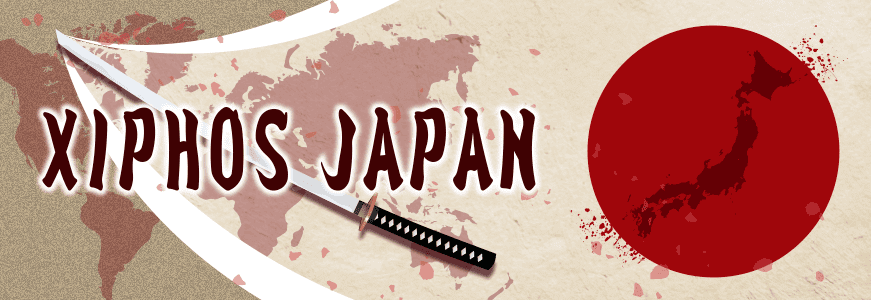 The need for useful and accurate information
The need for useful and accurate information
There are some essential elements of doing business in Australia that are essential for success In the top three, there is always this clause, “Get accurate local information”. Jumping into the area without accurate information would be suicidal.
Unfortunately, we Japanese are unfortunately not sufficiently informed about Australia. It is not. There are two major reasons for this.
One is a difference in perception. As I mentioned last month, the Japanese still tend to think that information is free. I feel that the perception of paying the price to get it is a little lower than in other countries. From the point of view of the provider of the information, you need to understand the value of the information and pay for it. It’s business as usual to prioritize the one who can give you the best. The information you get for free is often already delayed or not important information, and the price is Japanese who are reluctant to pay will inevitably be the first to receive useful information directly related to their business Putting it in” will cause you to fall behind on the information front in recent years.
The other problem is the language barrier. Although the number of Japanese who can speak English has been increasing in recent years, there is still a big difference between Japanese people and people from other countries. Power is insufficient. To put it more accurately, it’s not just about pure English, but also about the local people’s fearlessness and You lack the ability to socialize and blend into the circle. I’m not saying that the information you pick up from the internet by skipping out on socializing is meaningless, but still Information is best heard directly from someone who is well versed in the field.
The late Soichiro Honda, who grew Honda Motor Co., Ltd. from one of the largest regional factories into a “Honda of the World”, was still in his second He came to the U.S. at a time when the ravages of war were still fresh in his mind, and even though he couldn’t speak good English at local bars, he was able to get a feel for the company’s products. They talked about it. The Caucasian complex that the Japanese have not yet been able to get rid of is a thing of the past. This energy and fearlessness is the driving force that has made Honda what it is today.
Objectively speaking, I honestly don’t think people in South America and Southern Europe speak good English either. When I first arrived in Australia, my language skills were much the same as the Japanese. The only big difference is that they are more and more forward, trying to get out in front and integrate into the local area. The more you interact with people and build up friendships, the more and deeper you will get, the more you will know, and the more you’ll be able to get to know the locals. You can get information you can’t get. As a byproduct of this process, you can improve your language skills by communicating with the local people I will. In order to get useful information quickly and accurately, it is important to find out how quickly you can integrate into the field. is the biggest key.
You can’t succeed in business if you’re stingy!
All companies have limited budgets, so I’m not saying that they should spend money like hot water, but I am saying that they should spend money on the things that need to be done You can’t drown your success if you’re not willing to spend money. As I’ve written before, in addition to information, the Japanese are also known for their “free or paid for services. Many people tend to think of it as “not a thing. The Japanese are visible and tangible, as evidenced by their sometimes blind respect for manufacturing. There is a tendency to value things superiorly. Whether it’s good or bad, if you’re thinking about doing business abroad in the future, the unstructured, unstructured In other words, we should recognize the importance of information.
Once you believe that “information is worthless once you’ve heard it,” then you can certainly spend money on just that. You may be hesitant to pay, but you may say, “This is for the knowledge that is your blood and flesh. It is easier for Japanese people to accept paying for their own education. This kind of soft thinking is also essential abroad.
There have been cases in the past where the sparing of a little bit of money has led to the need to spend a lot more – whether or not you’re willing to shell out for knowledge you don’t know.
I met my client, a Japanese national, on a job. I was asked a barrage of questions about Australia’s information and laws. I am also very happy to see the same Japanese people abroad, so I will try to answer their questions as much as possible, and I will try to make the best of it. It was. But sooner or later, the scope of the questioning will extend to technical knowledge and areas where there would normally be a fee. I did. So, I said, “We’ll need to sign a consulting agreement first,” and that there would be a fee. When I told him, he looked at me dubiously and said, “Why does it cost so much just to listen to you? I said, “You’ll have to pay for information and answers to your questions,” and he said, “Let me think about it. …and then we never heard from him again.
After some time, I was suddenly contacted by this person and we met again. They’ve gone around to a few companies, not just mine, but they’ve asked detailed questions about every company. He was told that there would be a charge, and if that’s the case, he didn’t have to look into our rules and regulations. He decided that he could handle it himself and went ahead with the business, but it seems that there were some problems, so he asked me for help in a hurry. The truth was that I asked for it.
I was surprised to look over the paperwork that was given out! It was amazing how they could make things so bad. I didn’t want to take that kind of job if I could, but it looked like I was in real trouble. I was determined to help. However, the story was quite complicated, and we decided that it would take three times as much time as usual for us to labor I offered a rate that was worth it. Then, “That’s not what we charged last time! And the person was quite upset. I was confronted with why I couldn’t do it for the same price as the last time.
I made an analogy, perhaps a little inappropriately, with my illness. The last time I had early-stage cancer, the treatment time was shorter and the cost of treatment was lower. But this time, it’s terminal and has spread to the whole body. It’s so hard to know if you can be cured by a famous, great doctor operating on you. Naturally, the treatment period is long and the cost of treatment is enormous. When I discovered early stage cancer, I recommended treatment, but was refused because I was told the cost of treatment was too high. It’s far worse from that state of affairs, so it’s inevitable that the rates will go up.” – this explanation But he wasn’t completely convinced, and the person went around to a few companies with the paperwork again. In the meantime, time is over. Eventually, I had to give up the business and return to Japan.
The business itself ended up failing because they spared a little bit of money at the beginning, and they spent more than that. We are forced to return home. Not to be a “cheapskate”, but Australia is different from Japan in many ways. In many cases, it’s better to invest in it as a tuition fee.







